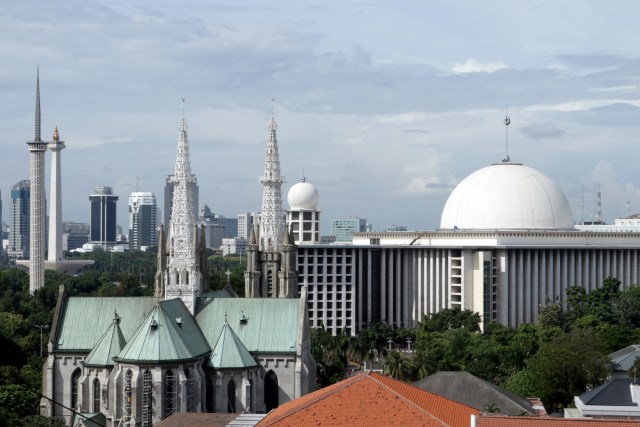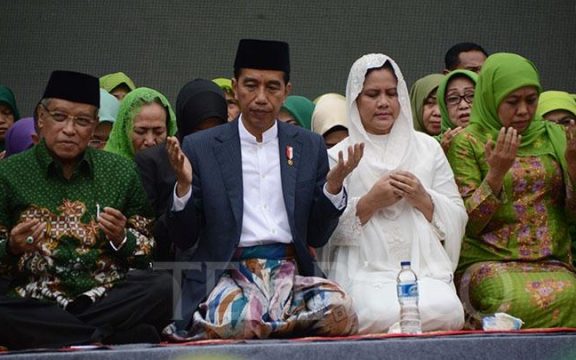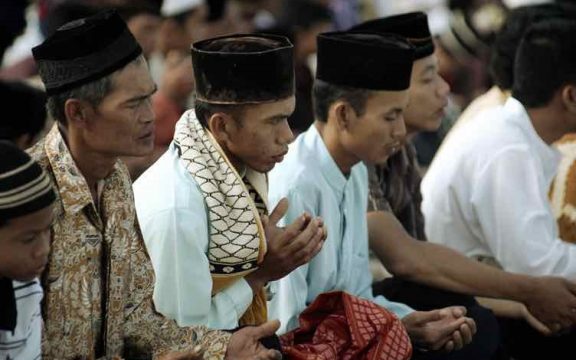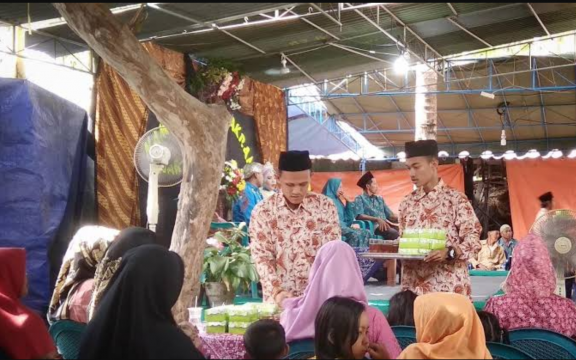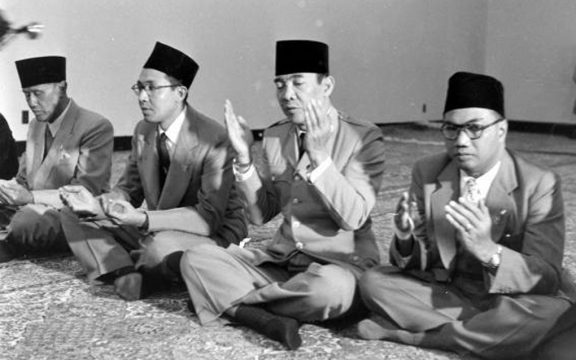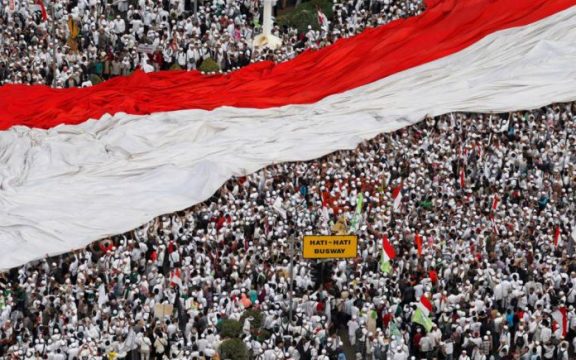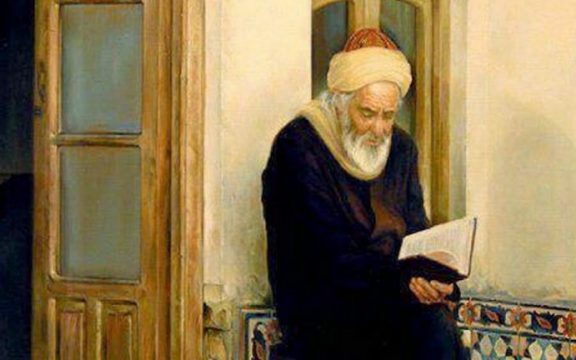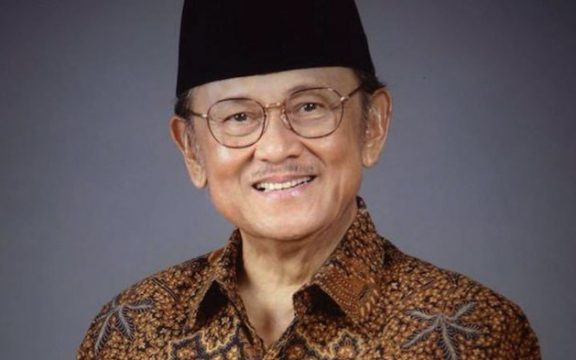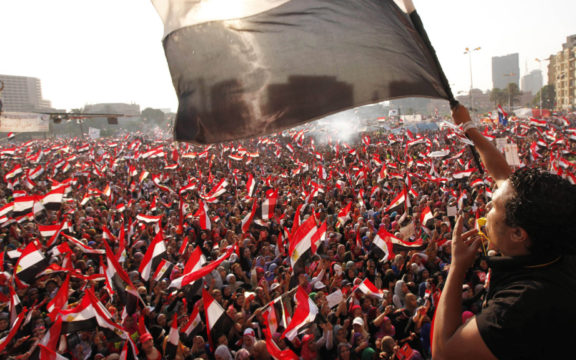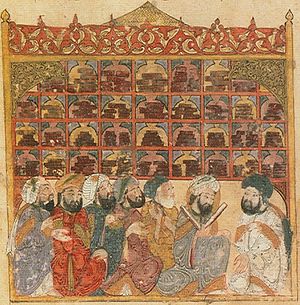Popular belief said that Indonesia is the world’s most populous Muslim country. The Arabs called, “A’zham Bilad al-Islam fi al-‘Alam”. The population of Muslims in Indonesia constitutes about 87% of 262,000,000 (2018) inhabitants.
There are hundreds of thousands of mosques and musallas, even malls commonly provide prayer rooms as well as tens of thousands of Islamic boarding schools and hundreds of thousands of Madrasas that parents send their children to learn Islamic teaching. There are also thousands of majlis ta’lim that are held daily, weekly or monthly, including majlis zikir and salawat which are held in many places. In addition, Indonesia is well known as the home for the largest Hajj pilgrims; 1% of the population.
Lately, thousands of Indonesian people visit Mecca and Madina performing Umrah every day. When the holy month Ramadan arrives, thousands of people, men and women, both adult and children, go to the mosque to break their fast or attend the Tarawih prayers massively. In the last ten days of Ramadan, the mosques are crowded by people who perform “Qiyam al-Lail” (evening prayers) or i’tikaf, to stay in the Mosque for a particular time period. Those are all proud and thankful facts. Perhaps there is no other country enlivened by religious facilities and activities as Indonesia.
Tens of television channel in this country are full of da’wa broadcasts in various forms. Even at every prayer time, especially Maghrib, every TV channel broadcast the call to prayer (azan), becoming a living, daily sound to the ears of all Indonesian people.
There are also many religious holidays which are officially inaugurated by the State in Indonesia such as, among others, the Mawlid, Isra Mi’raj, Eid al-Fitr, Eid al-Adha, etc. Indonesian people cherish this momentum with religious rituals and ceremonies, religious lectures attended by thousands of masses, reciting the holy book or salawat and so on. Public offices and services are all closed only to give its officers opportunity to celebrate and commemorate these religious holidays.
Moreover, there are also religious festivals such as Tilawah Al-Qur’an Selection (STQ), competition in Qur’anic recitation to qualify the reciters for Musabaqah Tilwatil Qur’an (MTQ), in the following year. This routine event is held in various levels from the city level to the national level. This annual activity, of course, spends a lot of money. Another form of religious festivals is Musabaqah Qiroat Kutub (MQK), a competition of reading the Islamic classical scriptures book (kitab kuning) which is held every two years at the national level.
The most prominent thing is the establishment of a state institution regulating religious affairs, under the Ministry of Religious Affair. The minister has always been Muslim throughout the state’s history. The Ministry also manages religious education institutions, from kindergarten to university levels. Allocation of national budget for the Ministry is among the largest, the 4th highest of 34 Ministries. There are Religious Courts in all district-level areas, Religious High Courts in all provinces. There are Religious Court Laws, Marriage Laws such as Zakat Management Laws, etc., and lately Sharia-based Laws emerge in several provincial levels.
Despite the accomodation of Islamic institutions in structural level, we must highlight the acceptance of Pancasila (literally means five principals in Sanskirt) as the ultimate state’s foundation of Indonesia. All five pillars in Pancasila represent the basic virtues of Religion.
Grand Sheikh Al-Azhar Prof. Dr. Ahmad Tayyeb, who had just visited Indonesia, assessed that Pancasila was not only integrated but furthermore, represented the essence of Islam. The Nahdlatul Ulama scholars, the largest Islamic organization, view Pancasila as the basis of a final state.
In terms of political landscape, Islamic-based parties holds major seats on parliament. Members of the Republic of Indonesia Parliament for the 2014-2019 period are 560 people and Muslim members are majority. The details are as follows: PPP (United Development Party) 100%, PAN (National Mandate Party) 90%, PKS (Prosperous Justice Party) 100%, PKB (National Awakening Party) 81%, PBB (Crescent Star Party) 100%, Golkar (Functional Groups Party) 85%, Nasdem (National Democratic Party) 76%, PDIP (Indonesian Democratic Party – Struggle) 48%, Democratic Party 76%, Hanura (People’s Consciense Party) 86%, and Gerindra (Great Indonesia Movement Party) 57%. The president and vice president are Muslims as well as 34 appointed ministers. There are only 7 non-Muslim people among the ministers.
Eventually, reading these facts, at least two questions raise: First, can we call Indonesia basically an Islamic state? Second, what else is lacking for Muslims in implementing their religious teachings which must be facilitated by the state here? Just asking.
![Islami[dot]co](https://en.islami.co/wp-content/themes/jambualas/images/logo.png)
